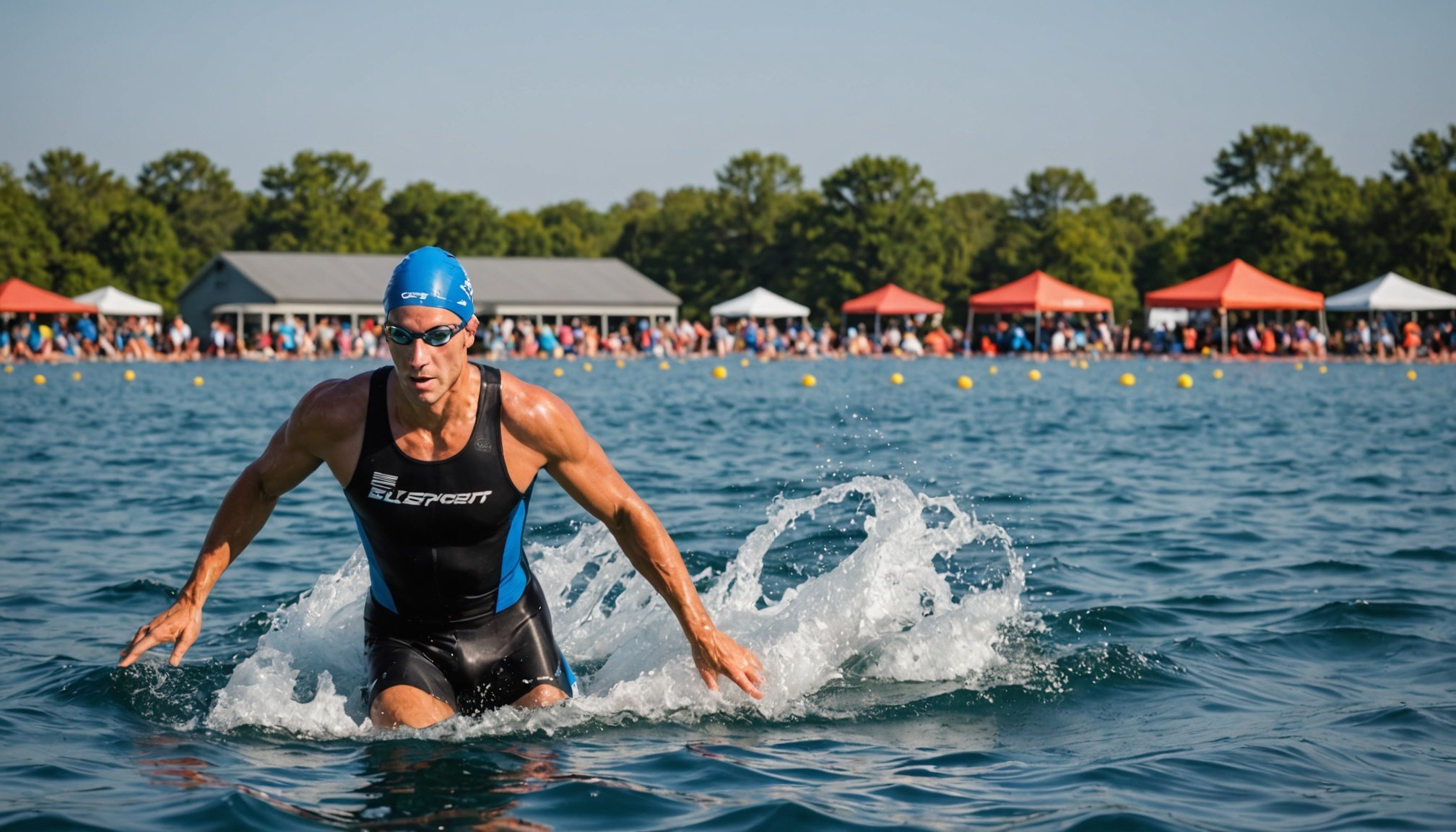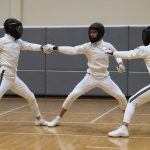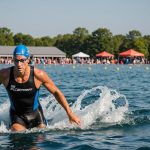Expert Open Water Training Techniques
Training for open water swimming requires mastering advanced training techniques and honing elite open water skills. Integrating proven drills into your routine is vital for increasing both speed and efficiency. Through these specific exercises, swimmers can refine their strokes, breathing, and body positioning, which are fundamental in gaining a competitive edge. This refinement is the backbone of competitive swimming, where fine-tuned techniques often determine the race outcomes.
An effective way to enhance your skills is by utilizing video analysis. By reviewing footage of your swims, you can identify both strengths and areas needing improvement. Video analysis helps swimmers visualize desired technique models and adjust their own movements accordingly. This method provides a clear, objective view of your performance, facilitating targeted improvements.
This might interest you : Unleashing mental toughness: a comprehensive athlete”s blueprint for using sports psychology to thrive in global competitions
Furthermore, structured training sessions focusing on specific aspects of open water challenges can significantly improve one’s capabilities. Inclusion of pacing drills, navigation practice, and simulation of various open water scenarios creates a well-rounded training regimen. By being mindful of these techniques, athletes can position themselves as formidable competitors in open water races, progressing towards elite-level swimming.
Coping Strategies for Open Water Conditions
Swimming in open water conditions presents unique challenges, requiring specialized coping strategies for success. An essential technique is acclimatizing to varying water temperatures. Cold water can cause muscle tightness and impact breathing, while warmer water increases the risk of dehydration. Acclimatization can be achieved by gradual exposure to unfamiliar conditions, allowing swimmers to adapt efficiently.
Also to see : Maximize your game: harnessing the benefits of plyometric push-ups for rugby athletes
Navigational skills are paramount in open water swims. Unlike pool swimming, where the lanes offer straight paths, open waters require swimmers to sight frequently to maintain their course. Using identifiable landmarks and regularly checking positions can enhance accuracy, preventing unnecessary detours.
Handling waves, currents, and visibility challenges is crucial for open water proficiency. Techniques like practicing in rough waters enhance stability and comfort in unsettled conditions. Currents may vary within a single event, so understanding how to work with or against them becomes a tactic within one’s strategic toolkit. Additionally, reducing head movement during forward strokes can improve visibility in choppy waters.
These coping strategies, when rightly applied, promote confidence and elevate overall performance, making swimmers more adept at conquering the demanding open water environment.
Nutrition for Elite Performance
In the realm of elite athlete performance, proper sports nutrition is crucial. It can significantly affect energy management, impacting both stamina and recovery. One of the most important aspects is optimal pre-race meals and hydration strategies. Ensuring the body is well-fueled and hydrated prior to competition ensures peak performance. Carbohydrates serve as a primary energy source, while electrolytes support muscle function and prevent cramping.
Supplements also play a role in performance enhancement. However, their effects vary, and it is essential to carefully select ones that complement individual nutritional needs. Proteins, creatine, and amino acids are common selections that assist in muscle repair and endurance.
Additionally, recovery nutrition is integral for elite athletes. It focuses on muscle repair and replenishing energy stores post-exertion. Consuming a combination of proteins and carbohydrates within 30 minutes after intense activity accelerates recovery and prepares the body for subsequent sessions.
Incorporating strategic nutrition practices into training regimens ensures swimmers maintain high energy levels, reduce fatigue, and achieve enhanced performance. Thus, understanding and applying the principles of sports nutrition is indispensable for those aspiring toward elite performance.
Mental Preparation Techniques
In the highly competitive realm of swimming, mental preparation can be the difference between winning and losing. Elite swimmers often harness visualization strategies to mentally rehearse races, envisioning themselves executing perfect strokes and turns. This mental imagery helps solidify technique and builds confidence, creating a strong swim performance mindset.
Additionally, building resilience and focus is essential. Training the mind to maintain concentration during high-pressure situations ensures execution remains sharp. Techniques such as progressive muscle relaxation and controlled breathing are commonly used to enhance focus. These practices also promote adaptability, allowing swimmers to quickly adjust to unexpected challenges throughout a race.
Moreover, incorporating mindfulness techniques offers significant benefits in reducing anxiety, a common struggle leading up to major competitions. Mindfulness encourages swimmers to stay present, alleviating stress about past performances or future outcomes. This calm presence allows the athlete to focus on immediate tasks, thus improving their overall swim performance. Simple routines like meditation or mindful breathing exercises can be integrated into daily training, helping to establish a balanced mental state.
By prioritizing thorough mental preparation, swimmers significantly elevate their performance, complementing physical training with a robust, strategic mindset.
Elite Swimmer Testimonials and Insights
The journey of an elite swimmer is often filled with unique stories, triumphs, and inevitable challenges. Hearing firsthand experiences can provide valuable personal insights. Many top-level athletes attribute their success to a combination of perseverance and strategic training regimens tailored to their specific needs.
For instance, some champions narrate how dedicated practice of specific drills helped refine their strokes, enabling more efficient water movement. Their stories reveal a consistent emphasis on maintaining discipline and commitment to continuous improvement. Many also highlight the importance of mental toughness in overcoming both physical and psychological barriers.
From these testimonials, aspiring swimmers can extract numerous key takeaways. One essential piece of advice is the significance of a well-rounded training approach that balances physical workouts with mental conditioning. Another critical takeaway is the importance of setting realistic yet challenging goals, allowing for sustainable progress and motivation.
Furthermore, elite athletes often stress the value of seeking guidance from experienced coaches who can tailor training interventions based on individual strengths and areas needing improvement. Lastly, they frequently emphasize the importance of focusing not only on long-term outcomes but also on enjoying each step of the journey towards achieving elite status.
Additional Resources for Training
To excel in open water swimming, robust training resources play a pivotal role in enhancing one’s skills. Recommended books and online courses deliver rich insights into technique refinement and training schedules tailored for various skill levels. They offer expert guidance on mastering the nuances of swimming mechanics, breathing exercises, and energy conservation methods.
Moreover, accessing instructional videos can supplement learning by demonstrating advanced training techniques visually. These videos often focus on key elements such as stroke improvement, pacing strategies, and drills to boost confidence, speed, and efficiency.
Swimmers can also benefit greatly from engaging with community forums and support groups. These platforms provide an opportunity to connect with fellow athletes, exchange tips, and share personal experiences. Such interaction not only fosters motivation but also offers valuable feedback from individuals who have successfully navigated similar challenges in their swimming journeys.
By leveraging comprehensive training resources, swimmers can enhance their elite open water skills, ensuring they are better equipped to tackle various open water conditions. Embracing a diverse array of educational materials, athletes can achieve continuous improvement, ultimately enhancing their overall swim performance and achieving their competitive aspirations.











